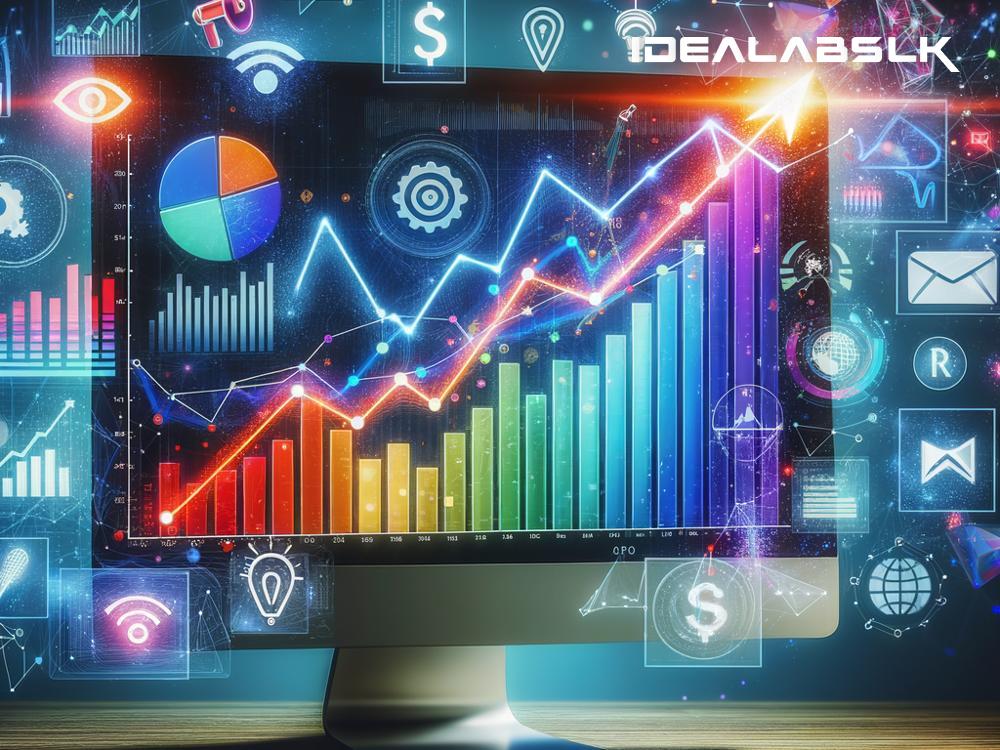Machine Learning for Predictive Analytics in Marketing Automation: Simplified!
In a world where the pace of technological innovation seems to accelerate each day, marketing isn't left behind. Today, let's unwrap an exciting duo that's transforming how businesses interact with customers: Machine Learning and Predictive Analytics in Marketing Automation. But fear not; we'll keep the jargon to a minimum and focus on the essence of how these technologies are a game-changer for marketers and businesses alike.
What's the Buzz About?
Imagine you have a crystal ball that can predict your customer's next move. Wouldn't that be a game-changer? Well, that's the promise of integrating machine learning with predictive analytics in marketing automation. It's like having a super-smart assistant who knows what your customers want, even before they do!
The Magic of Machine Learning
Machine Learning (ML) might sound like a complex, techy term, but here's a simpler way to think about it: ML is a way for computers to learn from data, identify patterns, and make decisions with minimal human interference. In the context of marketing, it means analyzing heaps of data to understand customer behavior better.
Predictive Analytics: The Future-Telling Tool
Predictive Analytics is about using data, statistical algorithms, and machine learning techniques to identify the likelihood of future outcomes based on historical data. It’s like looking at what has happened to forecast what might happen next, particularly regarding customer behaviors and preferences.
The Dynamic Duo in Action
When you blend Machine Learning with Predictive Analytics in marketing automation, magic happens. Here are ways this powerful combo is revolutionizing marketing:
-
Personalization at Scale: One size fits no one in the world of marketing. Machine Learning algorithms can sift through immense datasets to understand individual customer preferences, enabling businesses to tailor their marketing messages down to the individual level.
-
Anticipating Customer Needs: By analyzing past customer behavior, companies can predict what a customer is likely interested in next. This could mean suggesting the perfect product at the perfect time, ultimately enhancing customer satisfaction and loyalty.
-
Optimizing Marketing Campaigns: Not all marketing efforts hit the bull's-eye. However, with predictive analytics, businesses can forecast which marketing campaigns are likely to perform best for different segments of their audience, leading to more effective and cost-efficient marketing strategies.
-
Churn Prediction: Losing customers is a pain point for any business. Machine Learning models can predict which customers are at risk of churning, allowing companies to take proactive steps to retain them.
-
Enhancing Customer Journey: Every customer's journey is unique, and machine learning helps in mapping out these individual journeys. By analyzing the data, businesses can identify critical touchpoints and ensure that every interaction moves the needle towards a purchase.
The Application - A Real-World Example
Let's bring this to life with an example. Imagine a retail e-commerce business that implements machine learning and predictive analytics within its marketing automation platform. By analyzing previous purchase history, browser behavior, and even social media interactions, the system can identify which products a customer is likely to be interested in next. So, the next time that customer logs in or receives an email, instead of generic recommendations, they're presented with products they’re genuinely interested in. This not only increases the chance of a purchase but also boosts the customer's perception of the brand.
Overcoming Challenges
While the benefits are clear, challenges such as data privacy, integrating disparate data sources, and ensuring data quality need to be navigated carefully. Transparent data handling practices and investing in robust data management tools are essential steps in addressing these challenges.
The Future is Here
The integration of Machine Learning and Predictive Analytics in marketing automation isn't just a passing trend; it's the future of marketing. By leveraging this powerful combo, businesses can not only stay ahead of customer expectations but also transform the efficiency and effectiveness of their marketing efforts.
Simplifying Success
In conclusion, while the technology behind machine learning and predictive analytics might seem daunting, its application in marketing automation boils down to better understanding and engaging with your customers. It's about making smarter decisions, enhancing personalization, and ultimately, driving business growth. The era of guessing in marketing is over; welcome to the age of intelligent, data-driven decision-making.
And there you have it—Machine Learning and Predictive Analytics in Marketing Automation, demystified and unraveled. The next time you hear about these technologies, you'll not only understand what they entail but also appreciate the transformative impact they have on marketing today.

